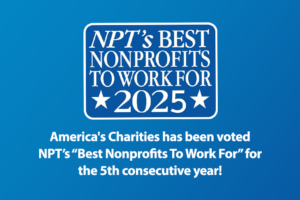Sarah Ford | June 18, 2014
4 Tips for Measuring Outcomes Instead of Activities
By Jason Saul
In my last post, I wrote about why it’s important for nonprofits to measure outcomes rather than activities. I was excited to see that the post sparked a discussion, but I also noticed that folks were unsure just how to go about measuring outcomes. So here are a few tips.
In more than 20 years of working with nonprofits, I’ve found that one of the most common frustrations is how to make use of limited resources to conduct evaluations that show an organization’s impact and meet grant makers’ expectations. These suggestions will help.
Aim at the right outcomes. The “right” outcomes are those you can credibly claim to produce. By that, I mean it must be believable that your organization makes a substantial contribution to producing the outcomes it lays claim to.
One charity I worked with wanted to say it had reduced a city’s unemployment rate. But this was a stretch because the city had a population of millions and the charity was providing job training to only a couple hundred people. In this case, it would’ve made more sense for the charity to determine how many program participants were successfully placed in jobs.
The right outcomes should also be relevant. In other words, they need to pass the “so what?” test. Just as you are deliberate about your organization’s mission, make sure your outcomes are relevant to that mission.
I was recently talking to a state budget analyst about the status of a road-construction effort.

Get Resources and Insights Straight To Your Inbox
Explore More Articles
For Fifth Consecutive Year America’s Charities Named ‘Best Nonprofit To Work For’
Washington, D.C. – April 1, 2025 – America’s Charities, the nonprofit that mobilizes the power of giving as a leading provider of volunteering, workplace giving,…
Read ArticleWorkplace Fundraising + Volunteering Summit (April 2nd and 3rd, 2025)
Join us in attending this virtual summit! The America’s Charities team is joining up with other leading voices in the workplace giving space for a…
Read ArticleThe Time to Act is Now
The results of the 2024 National Assessment of Educational Progress (NAEP) are in, and the findings are, in a word, heartbreaking. This assessment serves as…
Read ArticleGet Resources and Insights Straight To Your Inbox
Receive our monthly/bi-monthly newsletter filled with information about causes, nonprofit impact, and topics important for corporate social responsibility and employee engagement professionals, including disaster response, workplace giving, matching gifts, employee assistance funds, volunteering, scholarship award program management, grantmaking, and other philanthropic initiatives.




